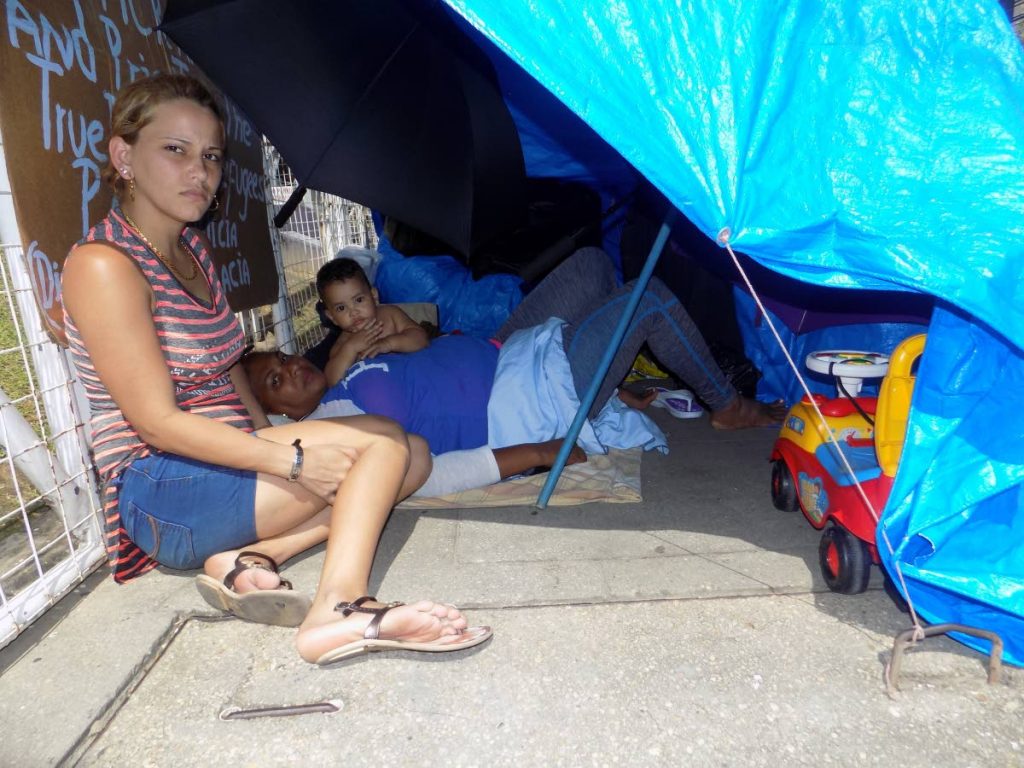No family, no home: Cuban children kept away from loved ones

How are the three Cuban children, separated from their parents who are seeking asylum in Trinidad faring? Christmas has gone and a New Year is right around the corner. The children, 14 and under, were taken away by the Child Protection Unit more than two weeks ago and placed in a community residence after their parents were arrested.
The Cubans had refused to leave the premises of the United Nations House at Chancery Lane, Port of Spain. The Cubans, then living on the street for more than a week, said they were pacifist protesters against the totalitarian system in Cuba and fled their home country because their lives were in danger. They have applied to the United Nations for asylum and were hoping to be relocated to the United States.
There were 18 Cubans who came to Trinidad seeking asylum. Five of them accepted housing from Living Water Community, but the rest were adamant that the UN provide them with refugee status and permission licence to the United States.
The immediate concern at this time, however, were the children. What kind of effect would it have on children, seeing their parents arrested and moved into unfamiliar surroundings with even stranger people?
Counselling psychologist Maryam Ali said there would be a definite negative impact on the children, especially on the older ones who would be more aware of what was happening. The younger ones would be confused because of the cultural and language barrier, she said, but the older ones would try to understand and cope with the difference.
“It will affect the younger ones what with being attached to their mother and father, but the older ones are a little more aware. Even if they don’t know what somebody is saying to them they could understand if somebody is not being nice to them, or being mean to them. Naturally the culture of orphanages and homes is not a nice environment.
“There are children from all different backgrounds with their own personal problems. You naturally find that the children who are in the homes are usually the ones who are quite aggressive and involve themselves in bullying. I can see how a situation like that would definitely affect these children. Being placed in a home is one thing, but being placed in a home in a whole different country is a next thing,” Ali said.
Psychologist Anna Maria Mora, representative for the International Association for Counselling (IAC) Executive Council and Regional Representative for the Caribbean Region said no matter where children came from, or what was their status, they had rights. Mora said children who were not citizens of a country or refugee children, were to be treated with care and looked after because it was their right, according to Article Two (2) of the UN Convention and the Rights of the child.
“Children have rights no matter who they are, no matter where they live, what their parents do, what language they speak, what their religion is, whether they are boy or girl, what their culture is, whether they have a disability, rich or poor... no child should be treated unfairly on any basis,” Mora said
She said governments had a responsibility to make sure that children’s rights were protected...where they must protect families and create an environment where they could grow and reach their potential. Mora said Trinidad and Tobago signed the UN Convention on December 5, 1991 to ensure their support.
“Obviously when children are separated from parents for whatever reason, there must be some fear, there will be feelings of loss which would cause a lot of grief. They were with their parents on the sidewalk when I saw them,” she said.
Mora said according to the UN Convention on the Rights of a Child, every child had a right to life and the State should ensure the survival and development of every child. The Children’s Authority remained mum on the status of the children citing confidentiality.

Comments
"No family, no home: Cuban children kept away from loved ones"